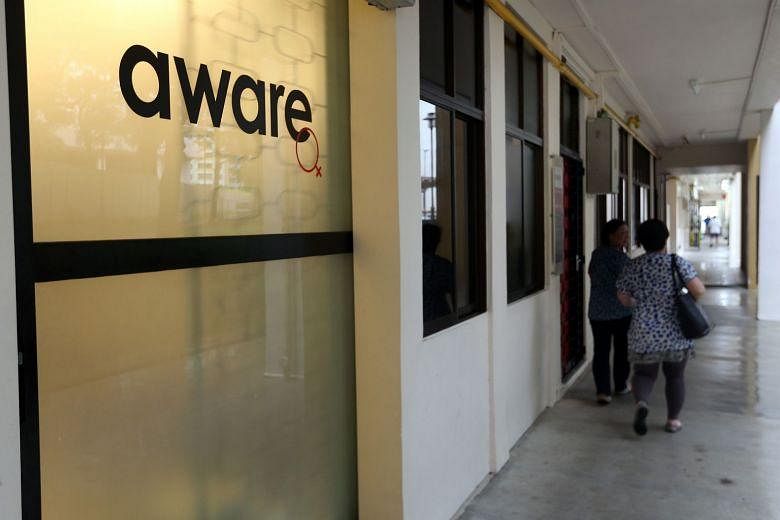A coalition of about 60 non-governmental organisations (NGOs) has been working together for the first time to submit a joint report on gender discrimination here to a United Nations committee.
But fault lines emerged, even before the shadow report for the UN's Convention for the Elimination of All Forms of Discrimination Against Women (Cedaw) committee was presented.
A media conference yesterday that would have revealed details of the report was cancelled with three hours' notice. The Straits Times understands that groups including the Singapore Muslim Women's Association (PPIS), the People's Association's Women's Integration Network and the NTUC Women and Family Unit decided not to support the report because they found some parts too divisive or irrelevant to their organisation's interests.
The contentious points in the report included calls for a ban on polygamy and a shift away from abstinence-based sex education.
The press conference was supposed to have taken place at the Singapore Council of Women's Organisations (SCWO) headquarters.
SCWO is helmed by Dr June Goh, former president of the Association of Women Doctors Singapore executive committee.
The report was drafted by an editorial committee with representatives from SCWO, women executives group Zonta, women's rights group Aware, Singapore Association of Women Lawyers (SAWL), human rights group Maruah, PPIS and women's club Soroptimist Garden City.
-
Some points in draft report as of Sept 5
-
• Repeal Section 377A of the Penal Code.
• Move away from abstinence-based sexuality education in schools to neutral, informative education, including a focus on gender equality.
• Remove gender wage differentials presently justified by reference to men's national service; compensate for NS directly through pay and benefits, and expand it to include military and non-military roles assigned by preference, aptitude and need rather than gender.
• Ban polygamy or introduce measures to end it in practice (for example, make consent of the first wife mandatory before a second marriage can be contracted). Remove the requirement of consent of a wali (that is, a guardian) for women to marry; make Registry of Muslim Marriages the automatic wali - subject to women opting out-pending this change. Allow suits by Muslim parties and those involving children to be heard in Family Justice Courts instead of automatically staying them for transfers to Syariah Court.
• Remove all legal and policy distinctions between single and unmarried parents and between children based on "legitimacy"; in particular, allow an unmarried parent and her child to form a "family nucleus" to access public housing.
It highlights gender inequalities in areas such as employment, family and politics, and issues such as violence against women, and also makes recommendations for a greater national commitment to end gender-based discrimination. Together with other reports, including those from the state, such NGO inputs influence recommendations by the UN on improving the status of women in individual countries.
The women who were supposed to present the Singapore report yesterday were Ms Malathi Das, immediate past president of SCWO; Ms Jolene Tan, Aware's head of advocacy and research; and Ms Halijah Mohamad, vice-president of SAWL.
Ms Malathi and Ms Halijah were unable to comment, while Ms Tan said that the report had been modified to reflect feedback given.
SCWO said the press conference was cancelled because "we realised at this stage that we did not have the overwhelming support that we decided we needed". At the moment, the report does not have the backing of the majority of SCWO members, it told ST in a statement.
SCWO said this could be because some groups were more involved in the report, some were unsure or were not as interested in Cedaw, and others had missed reading the drafts sent earlier. Drafts were sent to coalition members via e-mail between February and this month. Each draft preceded an open meeting to discuss and get feedback.
PPIS told ST it took issue with parts of the report that touched on several aspects of Muslim law, including polygamy and inheritance.
PPIS said it "remains in an unenviable position of having to balance and reflect the varied voices of Muslim women in Singapore. Endorsing the report in its entirety for now is not to our interest".
The board members of some women's groups complained of poor communication during the endorsement process. One expatriate women's association said it was not even aware it had been added to a list of groups supporting the draft report. Not all members of the coalition are SCWO members.
Veteran women's rights advocate Kanwaljit Soin, a founding member of Aware, said there was "no need to make a fuss" out of the matter. She noted that having many members working on a joint report posed challenges: "Some of them are single-issue organisations, and probably more interested in their own areas."


